Graphic
Arani Halder 2 Untranslate
-
Tauira / Student
Arani Halder -
Kaitautoko / Contributors
Esra Gumrukculer, Carolyn Olaguivel, Namra Khalid, Paloma Corrigan, Anamika Ananth, Aruja Kothari, Deveshi Jhunjhunwala, Jiahui Yu, Sinong Li, Sichao Liu, Anjana Halder, Iris Favand, Deepak Warrier -
Kaiako / Lecturer
Andrew LeClaire
-
School
Parsons School of Design

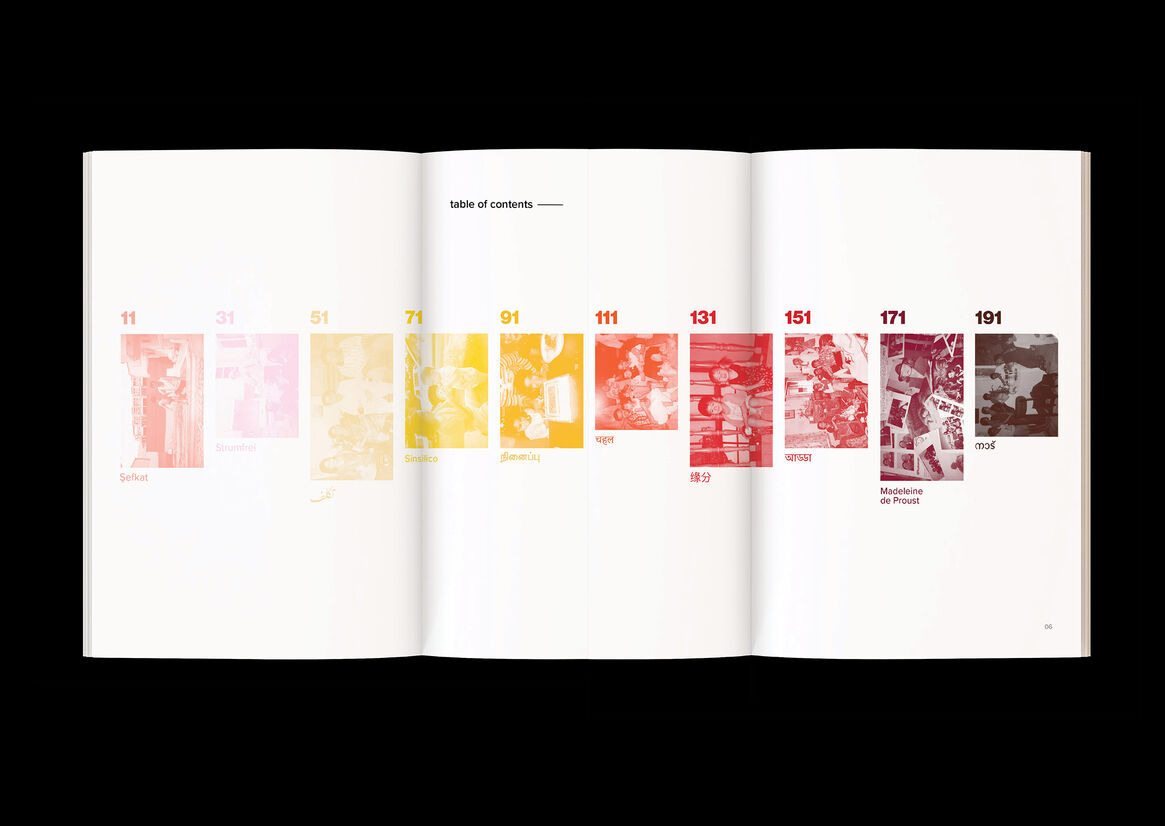
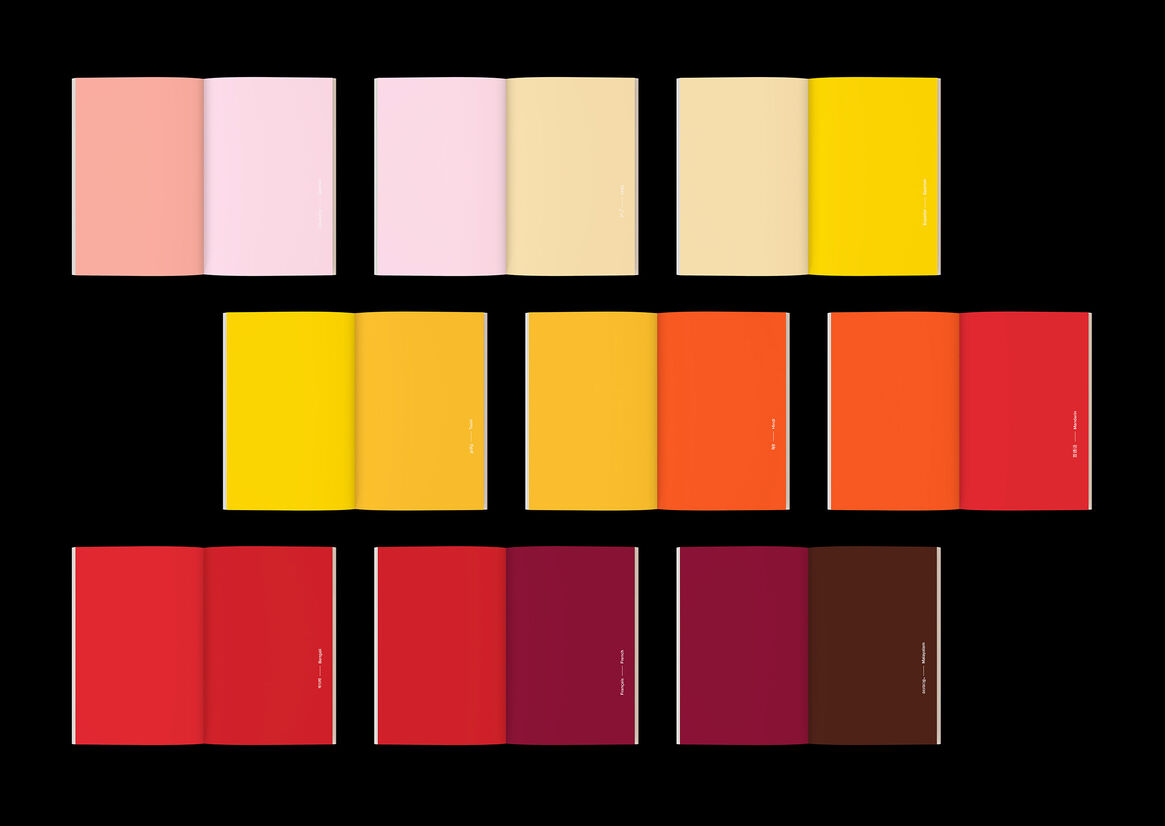
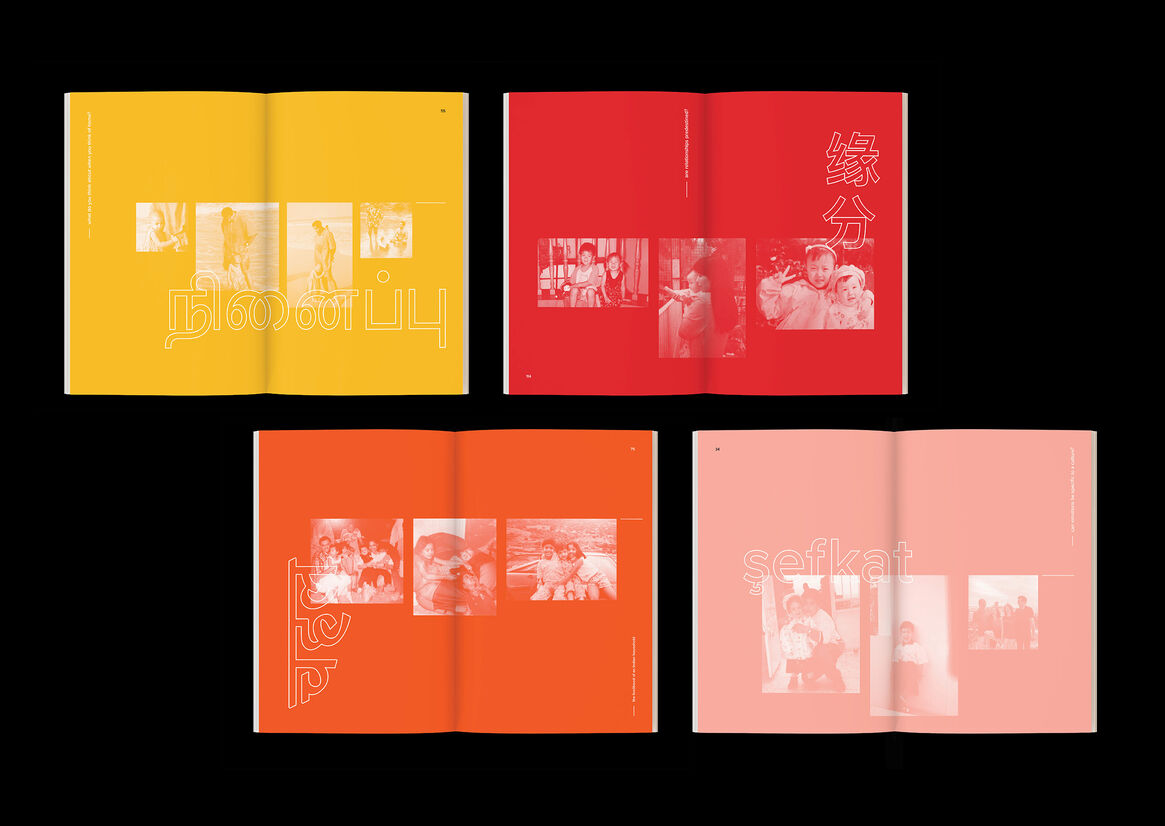
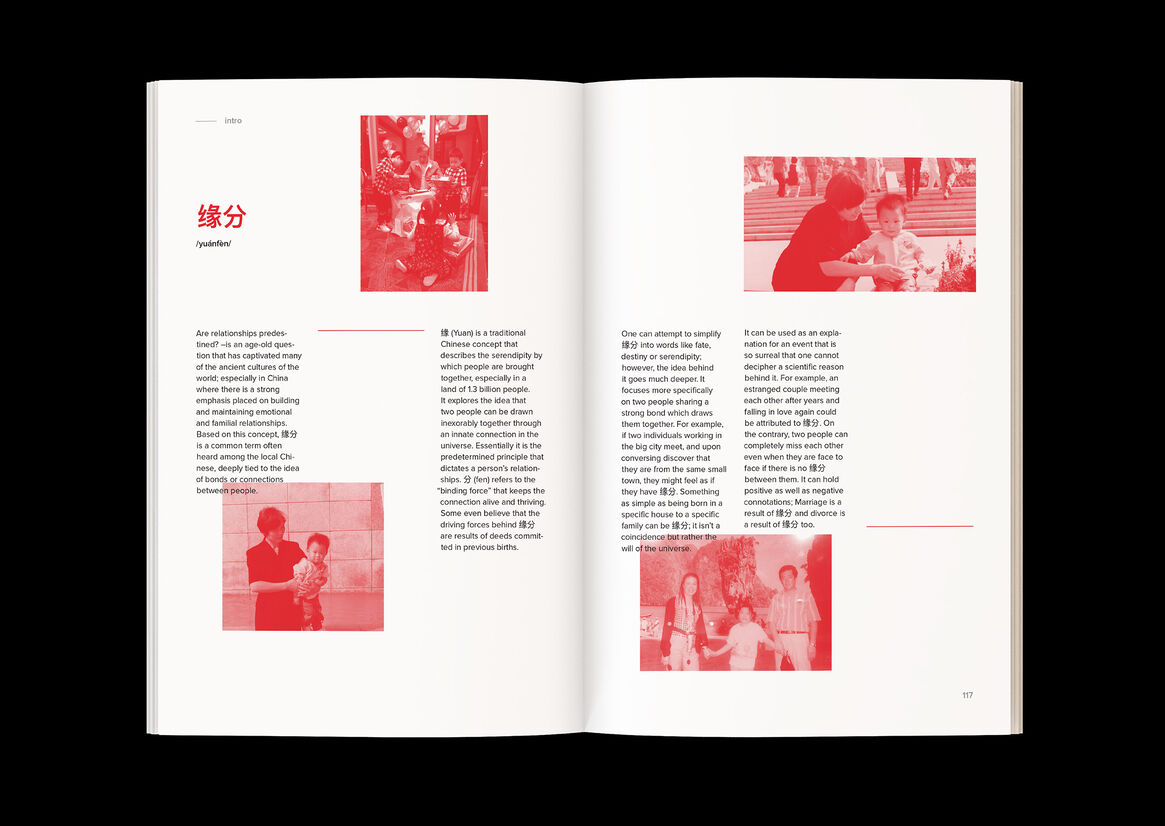
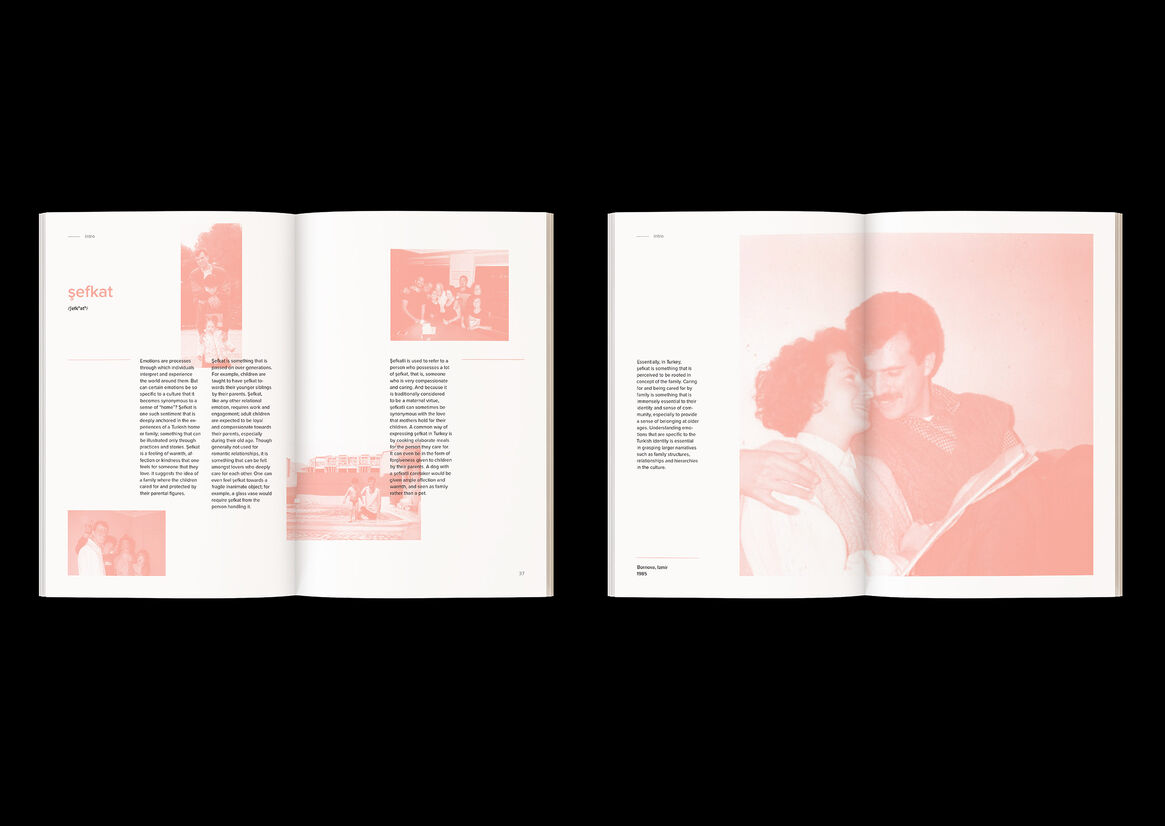
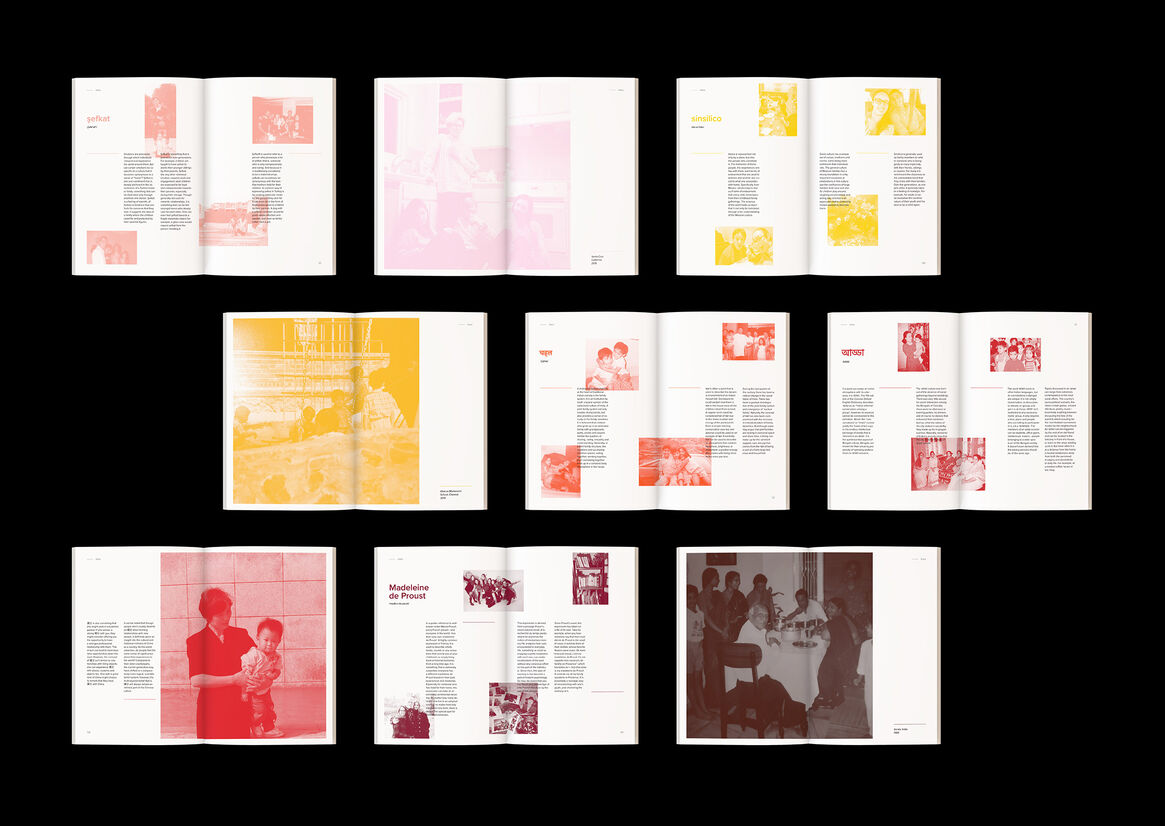
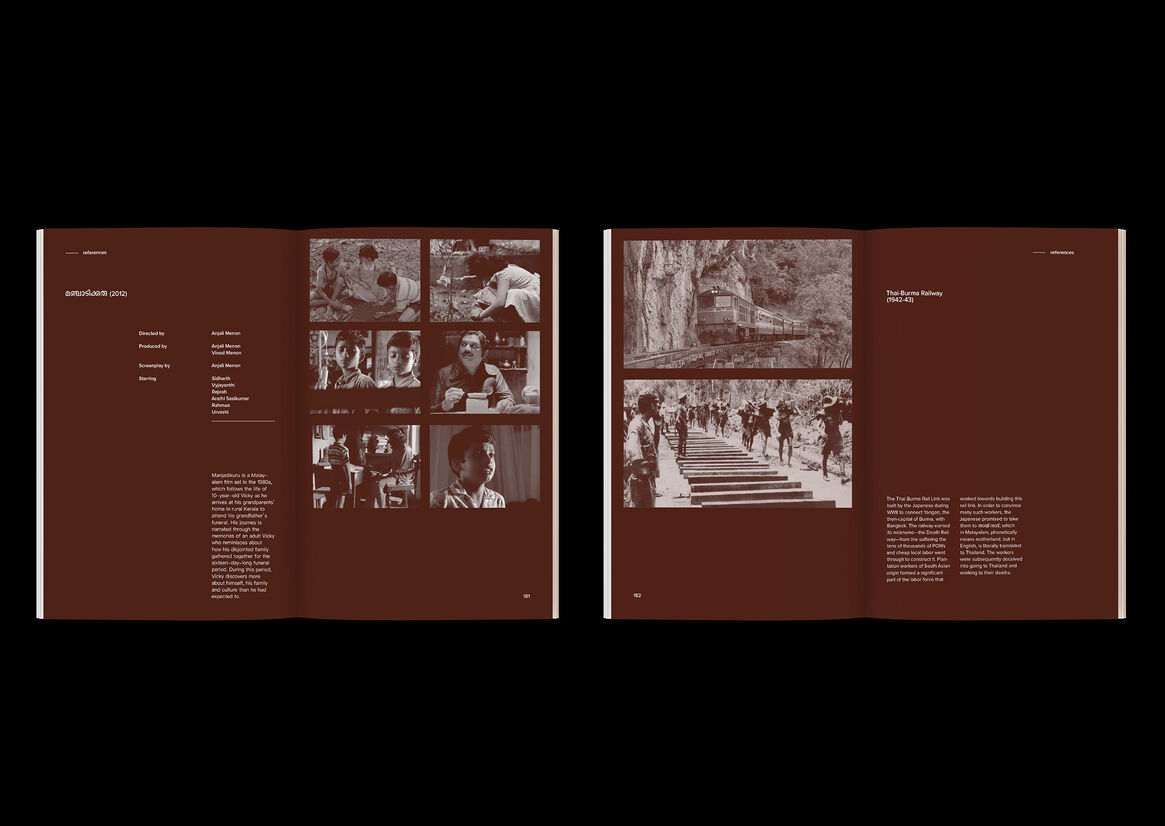
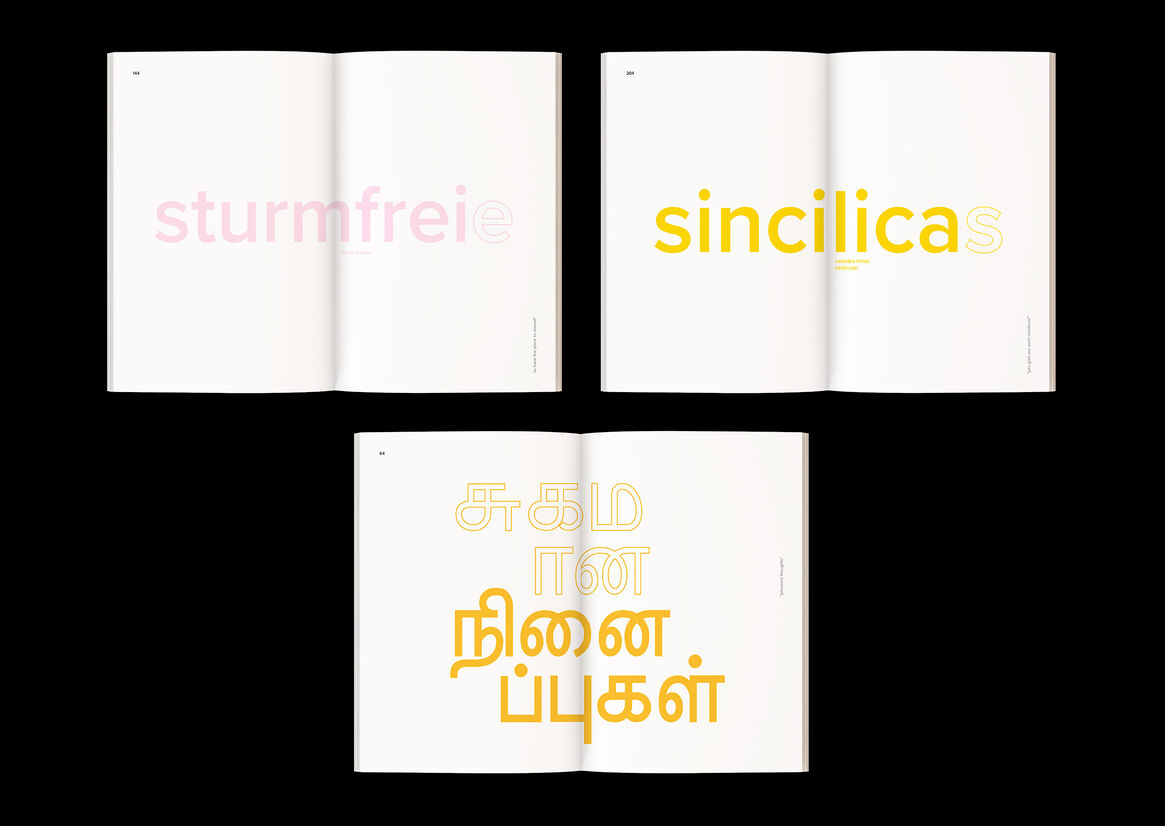
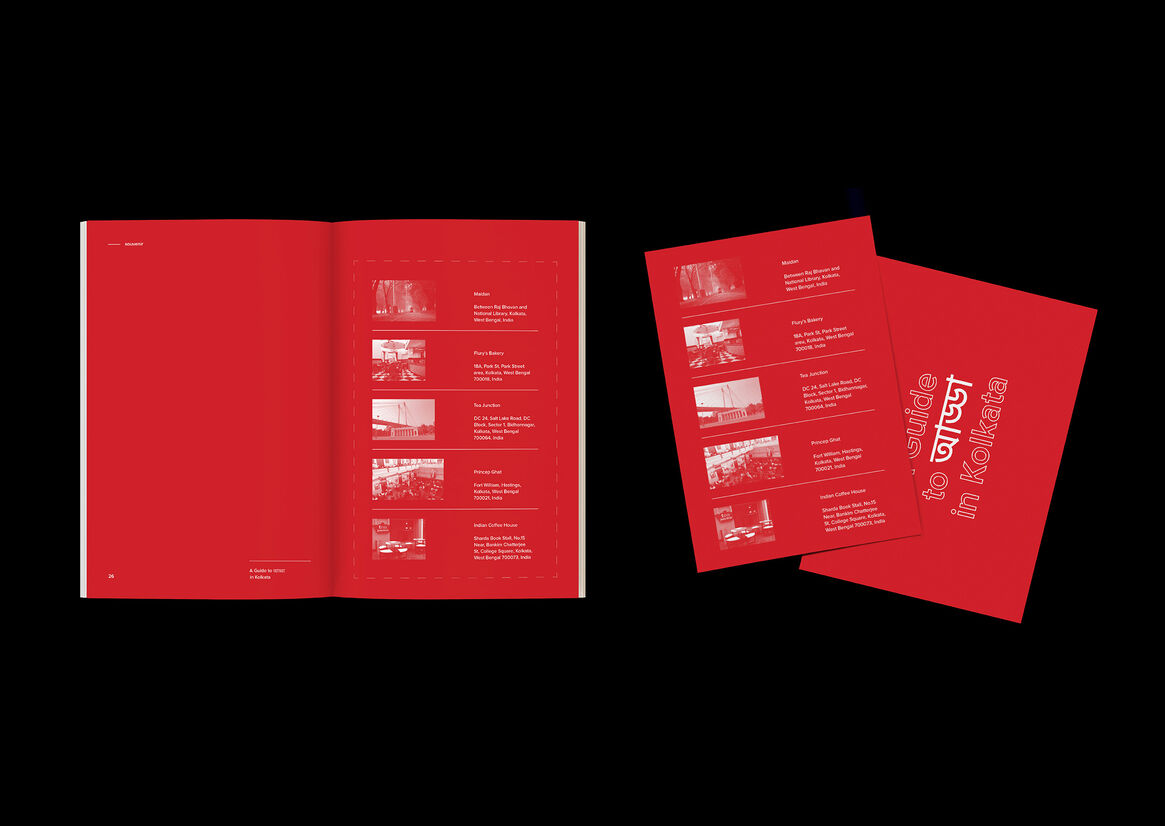
Description:
Language is not just a tool, but a reflection of its surrounding culture, people, media, and socio-politics. Therefore, the true essence of a language can never truly be translated into another. Certain words, phrases, and expressions can only be fully understood by interacting with the culture and the people it has emerged and grown from. The large number of people who grow up outside their state or country often lose the privilege of being immersed in their native languages and cultures.
My project, Untranslate explores the barrier between languages through the subjective experiences of people. The book delves into the idea of home through accounts of people from around the world. Each of the 10 chapters features a different language as narrated by one or more native speakers. Each story of home is not only told using a word or phrase from the speaker’s language but also dives into their memories of people, places, events, food & music. Thus, through Untranslate, one not only understands a piece of language but is able to engage and contextualize it within its nuanced surroundings.
The book is segmented into 10 folios for its 10 languages. The folios hold images and are in the colors that were carefully picked by the narrators of each language. Each segment is held to the other by a drum leaf bind. Every folio starts out with a highly contextual essay that tries to explain the essence of the word through references and anecdotes. The next sections present cultural, social or political references related to the word. This can be in the form of books, movies, songs, news articles etc. whose content is descriptive of the word. The last section of the book is a removable souvenir section that can be in the form of a postcard, bookmark, stickers etc. Each souvenir is based on a personal story of the narrator, and lets the reader keep a part of the book with themselves after they are done reading.
Untranslate creates a platform where one can grapple with intricate cultures through language and vice-versa. It celebrates the unique identities of communities and roots itself in the idea that pluralism — both linguistically and culturally — creates a sense of harmony.